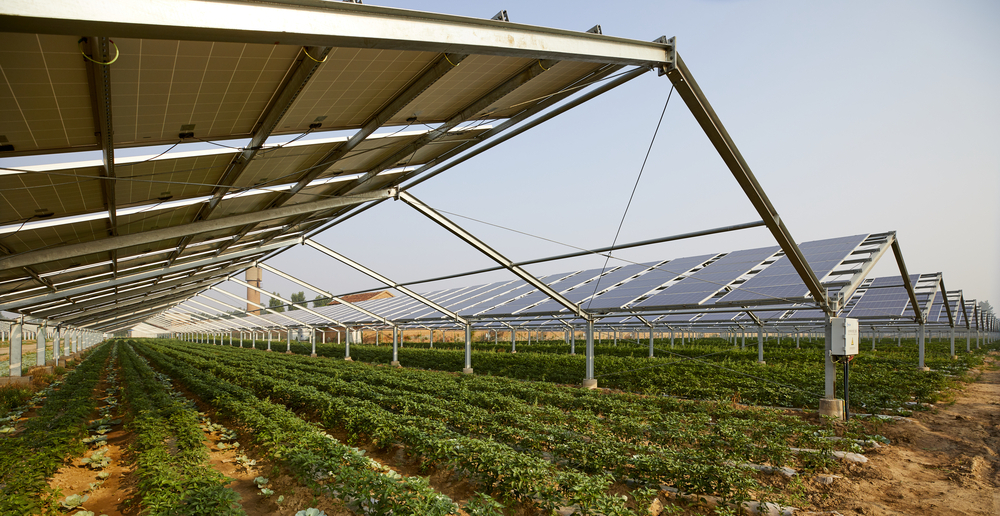In today’s rapidly evolving agricultural landscape, the quest for sustainability is more pressing than ever. Farmers around the world are seeking innovative solutions to minimize environmental impact while maximizing productivity. One promising avenue is the adoption of Agriculture Solar Systems. But are these systems truly the future of sustainable farming? Let’s delve into this question and explore the potential benefits and challenges they present.
Understanding Agriculture Solar Systems
Before we delve into their sustainability, let’s grasp the basics of Agriculture Solar Systems. These systems involve the installation of solar panels on farms to harness sunlight and convert it into usable energy. This energy can power various farm operations, including irrigation, lighting, and machinery. By utilizing renewable energy sources like sunlight, Agriculture Solar Systems aim to reduce reliance on non-renewable fuels and decrease carbon emissions.
The Promise of Sustainability
One of the primary appeals of Agriculture Solar Systems is their potential to promote sustainability in farming practices. By tapping into renewable energy, these systems offer a cleaner alternative to traditional fossil fuel-based power sources. This shift towards sustainability aligns with the growing demand for environmentally friendly agricultural practices. Moreover, Agriculture Solar Systems can contribute to energy independence for farmers, reducing their reliance on external power grids and fluctuating energy prices.
One notable player in the realm of renewable energy is DSG Energy, a part of the DS Group of companies, which was founded with a mission to make meaningful contributions to Pakistan’s development. Specializing in the power sector with a strong emphasis on renewable energy, DSG Energy is at the forefront of promoting sustainable solutions like Agriculture Solar Systems. Their diverse portfolio also includes endeavors in learning and development, education, imports and exports, as well as consultancy services for large-scale projects in both the public and private sectors. Through their innovative approach and commitment to sustainability, DSG Energy exemplifies the potential of companies to drive positive change in the agricultural sector and beyond.
Environmental Benefits
The environmental benefits of Agriculture Solar Systems are significant. By harnessing solar power, farmers can significantly decrease their carbon footprint, leading to reduced greenhouse gas emissions. Additionally, these systems help mitigate air and water pollution associated with conventional energy sources. As a result, Agriculture Solar Systems play a crucial role in preserving ecosystems and combating climate change, making them a vital component of sustainable farming.
Financial Considerations
While the environmental benefits are clear, the financial aspects of Agriculture Solar Systems also warrant examination. Initially, the installation costs of solar panels and associated equipment can be substantial. With advancements in technology and government incentives for renewable energy, the cost-effectiveness of Agriculture Solar Systems is steadily improving. Over time, farmers can recoup their initial investment through energy savings and, in some cases, revenue from excess energy production sold back to the grid.
Challenges and Limitations
Despite their promise, Agriculture Solar Systems are not without challenges and limitations. One significant consideration is the variability of sunlight, which can affect energy production and reliability. Additionally, factors such as location, weather patterns, and seasonal changes can impact the efficiency of solar panels. Moreover, the upfront costs of installation may pose a barrier to adoption for some farmers, particularly those operating on smaller scales or facing financial constraints. Addressing these challenges requires ongoing innovation, investment, and policy support to make Agriculture Solar Systems more accessible and effective for all farmers.
Integration with Existing Infrastructure
Another key aspect to consider is the integration of Agriculture Solar Systems with existing farm infrastructure. Farmers must assess their energy needs, land availability, and logistical considerations when planning the installation of solar panels. Proper siting and design are crucial to maximizing energy production and minimizing disruptions to farming operations. Additionally, incorporating energy storage solutions, such as batteries, can enhance the reliability and resilience of Agriculture Solar Systems, ensuring continuous power supply even during periods of low sunlight or grid outages.
Conclusion
In conclusion, Agriculture Solar Systems hold tremendous potential as a sustainable solution for the future of farming. By harnessing the power of sunlight, these systems offer environmental, financial, and social benefits to farmers and communities alike. While challenges exist, ongoing advancements in technology and supportive policies are driving the widespread adoption of Agriculture Solar Systems. As we strive towards a more sustainable agricultural future, embracing renewable energy sources like solar power will be essential. Are Agriculture Solar Systems the future of sustainable farming? The evidence suggests that they are indeed a critical piece of the puzzle.

